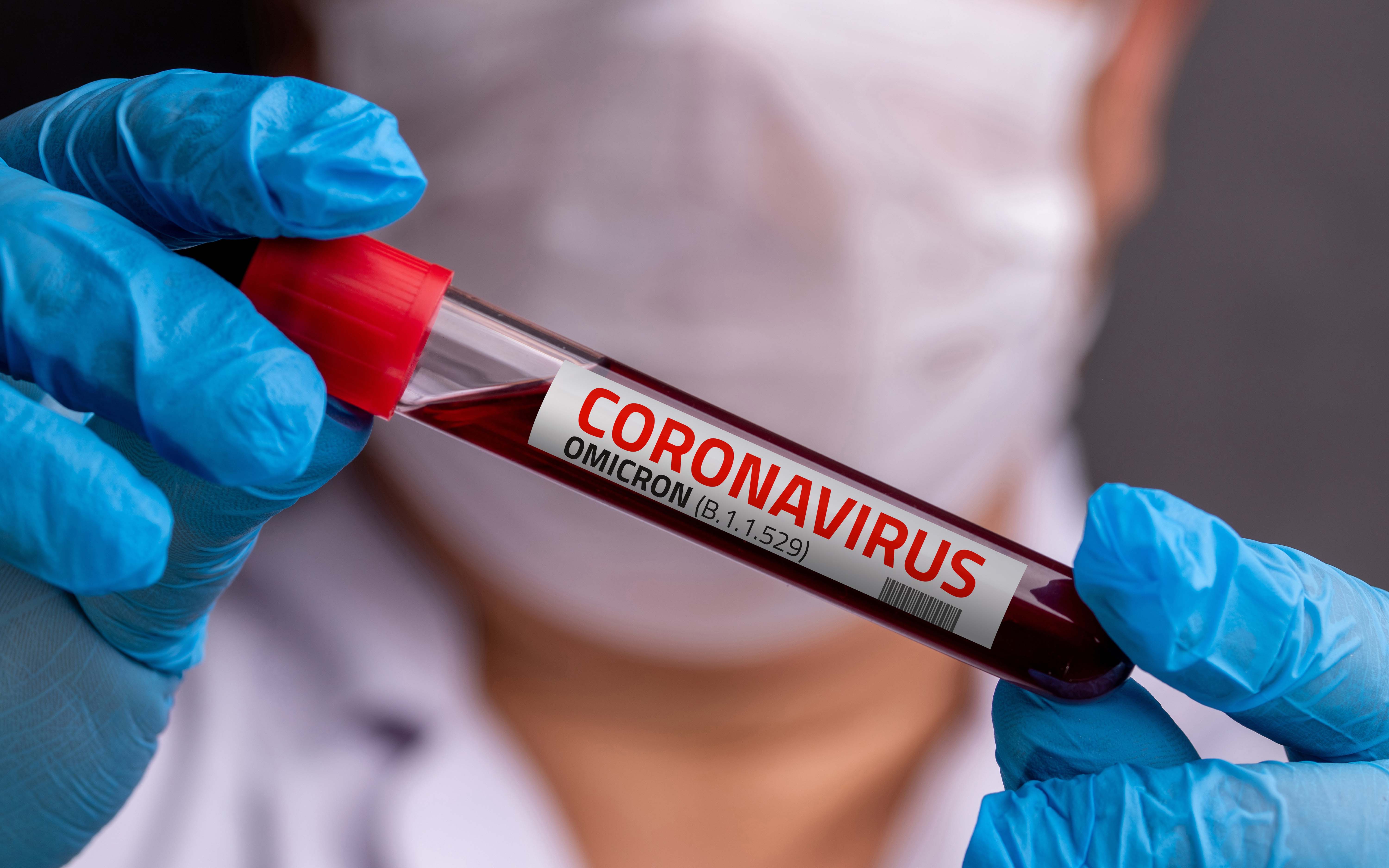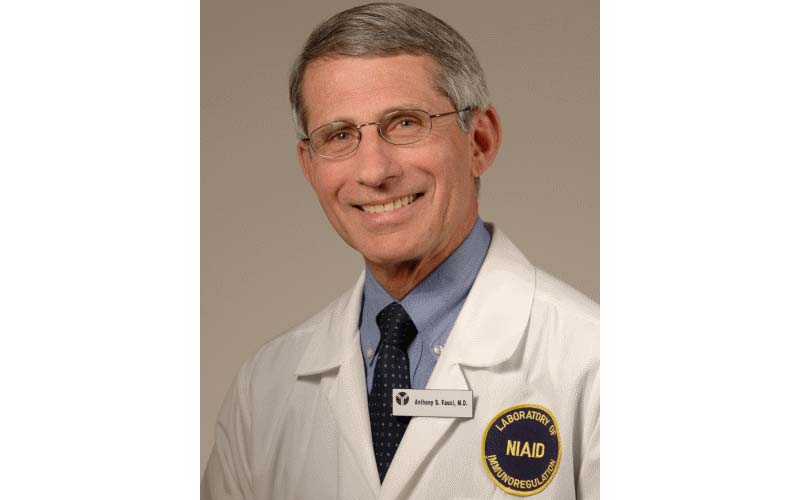Biden administration responds to spread of new ‘Omicron” COVID-19 strain
December 6-12, 2021
By The Daily Record Staff
In response to the World Health Organization (WHO) declaring B.1.1.529 as a “variant of concern” on Nov. 26, the Biden administration has taken several steps to mitigate the spread of the COVID-19 strain in the U.S.
On the day before Thanksgiving, the Republic of South Africa informed the World Health Organization (WHO) of a new B.1.1.529 variant of SARS-CoV-2 that was detected in that country. Two days later, WHO classified the new strain as a new Variant of Concern and named it Omicron. No cases of this variant have been identified in the U.S. to date but the Centers for Disease and Control (CDC) said it is following the details of this new variant.
According to the U.S. Centers for Disease and Control and the Federal Drug Administration, both federal agencies housed within the U.S. Department of Health and Human Services, no cases of this variant now known as “Omicron” have been identified in the U.S. to date.
“CDC is following the details of this new variant, first reported to the WHO by South Africa. We are grateful to the South African government and its scientists who have openly communicated with the global scientific community and continue to share information about this variant with the U.S. Department of Health and Human Services and CDC. We are working with other U.S. and global public health and industry partners to learn more about this variant, as we continue to monitor its path,” CDC Director Rochelle Walensky said in a statement.
“CDC is continuously monitoring variants and the U.S. variant surveillance system has reliably detected new variants in this country. We expect Omicron to be identified quickly, if it emerges in the U.S.,” Walensky added.
Based on this information, the Biden administration is now halting travelers entering the United States from several African countries through the rest of 2021. These countries include Botswana, Eswatini, Lesotho, Malawi, Mozambique, Namibia, South Africa, and Zimbabwe. In addition to these travel restrictions, the CDC and the U.S. government is instituting other mitigation measures for travelers departing from the countries and headed to the U.S. as needed.
Also, President Joe Biden on Monday (Nov. 28) said that COVID-19 continues to pose a grave threat to the nation’s health and security, noting there has been more than 47 million confirmed COVID-19 cases and more than 773,000 COVID-19 deaths since March 2020.
President Biden also met with his Chief Medical Advisor, Dr. Anthony Fauci, and members of his White House COVID Response Team to get an update on the latest developments related to the Omicron variant. At the time, Fauci informed the president that while it will take approximately two more weeks to have more definitive information on the transmissibility, severity, and other characteristics of the variant, he continues to believe that existing vaccines are likely to provide a degree of protection against severe cases of COVID. Fauci also reiterated that boosters for fully vaccinated individuals provide the strongest available protection from COVID.
On Nov. 29, the CDC and the COVID Response Team’s issued an immediate recommendation to all vaccinated adults is to get a booster shot as soon as possible. The CDC said all adults are eligible for a booster if they were vaccinated six months ago or more with Pfizer or Moderna, or two months ago or more with Johnson & Johnson.
“It is the policy of my Administration to implement science-based public health measures, across all areas of the Federal Government, to act swiftly and aggressively to prevent further spread of the disease,” said Biden.
Also, the FDA on Nov. 30 said it is also actively working with our federal partners, international regulators and medical product companies to quickly address any potential impacts of the new omicron variant on the tools to fight the pandemic.
“The agency is working as quickly as possible to evaluate the potential impact of this variant on the currently available diagnostics, therapeutics and vaccines,” said Acting FDA Commissioner Dr. Janet Woodcock. “We are closely monitoring the situation and are committed to communicating with the public as we learn more.”
Woodcock added that historically, the work to obtain the genetic information and patient samples for variants and then perform the testing needed to evaluate their impact takes time.
“However, we expect the vast majority of this work to be completed in the coming weeks,” she said. “The FDA has been actively monitoring for the possible emergence of SARS-CoV-2 variants since early in the pandemic and has worked with medical product developers when a new variant (or mutation) emerges that could impact product performance.”
“The FDA is committed to continuing to use every tool in our toolbox to fight this pandemic, including pivoting as the virus adapts, to arm ourselves with the best available diagnostics, and life-saving therapeutics and vaccines to fight this virus,” added Woodcock.
World Health Organization pact
The White House said it will provide an update about the new variant and the U.S. response on Monday (Dec. 6). Separately, in a consensus decision aimed at protecting the world from future infectious diseases crises, the World Health Assembly on Dec. 1 agreed to kickstart a global process to draft and WHO to strengthen pandemic prevention, preparedness and response.
Dr. Tedros Adhanom Ghebreyesus, WHO Director-General, said the decision by the World Health Assembly was historic in nature, vital in its mission, and represented a once-in-a-generation opportunity to strengthen the global health architecture to protect and promote the well-being of all people.
“The COVID-19 pandemic has shone a light on the many flaws in the global system to protect people from pandemics: the most vulnerable people going without vaccines; health workers without needed equipment to perform their life-saving work; and ‘me-first’ approaches that stymie the global solidarity needed to deal with a global threat,” Dr. Tedros said.
The Health Assembly met in a Special Session, the second-ever since WHO’s founding in 1948, and adopted a sole decision titled: “The World Together.” The decision by the Assembly establishes an intergovernmental negotiating body (INB) to draft and negotiate a WHO convention, agreement, or other international instrument on pandemic prevention, preparedness and response, with a view to adoption under Article 19 of the WHO Constitution, or other provisions of the Constitution as may be deemed appropriate by the INB.
Article 19 of the WHO Constitution provides the World Health Assembly with the authority to adopt conventions or agreements on any matter within WHO’s competence. The sole instrument established under Article 19 to date is the WHO Framework Convention on Tobacco Control, which has made a significant and rapid contribution to protecting people from tobacco since its entry into force in 2005.
Under the new pact, the INB will hold its first meeting by March 1, 2022, to agree on ways of working and timelines and its second by August 2022 to discuss progress on a working draft. It will also hold public hearings to inform its deliberations; deliver a progress report to the 76th World Health Assembly in 2023; and submit its outcome for consideration by the 77th World Health Assembly in 2024.




